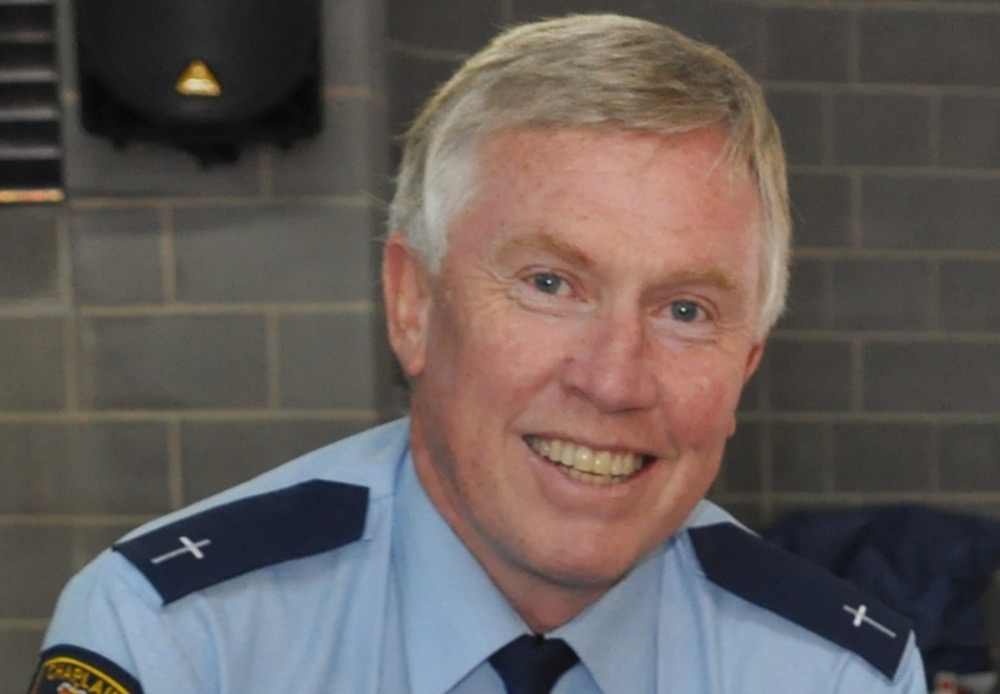Sydney, Australia
Who cares for the carers? Those who first arrive on the scene of an emergency or healthcare workers in daily emergency work will face the impact of other people’s trauma, albeit often in a delayed response. That’s why after more than a year of bushfires and COVID-19 in Australia – on top of the usual emergencies, Wellbeing Australia hosted an online First Responder Wellbeing Summit last week.
More than 600 emergency workers, volunteers, family members and leaders of first response agencies across Australia and overseas attended a variety of workshops that offered specific support from 1st to 5th March. Chaplains, agency leaders, therapists, and practitioners across the field of wellbeing strategy development gave participants 10 practical one hour sessions free-of-charge.

David Riethmuller, principal chaplain of the NSW police, was among those who presented at the summit. PICTURE: Supplied.
Most presenters called attention to the often overlooked spiritual issues that are at the root of post traumatic stress disorder and moral injury, which can be frequent hazards for first responders. Their steps to sustainable wellbeing were clearer and simpler than many participants had imagined.
“Our themes for the summit are really important and very closely held to us,” said Donné Newbury, chair of Wellbeing Australia. “[They are] living well through finding connection both with yourself, and those that are important in your well-being journey. Secondly to hold hope, which we think is absolutely critical for good wellbeing. And thirdly, is building a sense of community.”
Wellbeing Australia, a national, non-for-profit based entirely on volunteer work, operates without government funding and decided to hold the summit in response to the traumatic events of the past year.
Among those who presented at the summit was David Riethmuller, principal chaplain of the NSW police, Paul McFarlane, senior chaplain of NSW Ambulance, and Rev Gayl Mills, principal chaplain of the Australian Federal Police, who ran a session on spirituality and faith in the managing of wellbeing.
“Engaging with people on their terms opens opportunity to form trust and trust is the key foundation for forming a wellbeing strategy,” said Riethmuller.
But hope through developing a person’s spiritual life was not just the concern of the chaplains.
Mark Crosweller, former director general of Emergency Management Australia, was a panelist with Mills in a session entitled “My Why: when purpose, values and work collide”.
He recalled how, as a young first responder, his own world fell apart. “My career taught me that suffering did exist and I had to profoundly learn to understand what it meant,” he said.
Crosweller said eventually he learned to draw from his own difficulties in his efforts to be kind, patient, and considerate – things he called the “virtues”. His advice to first responders was to realise that “all these virtues are mixed up in what looks like a mess”. First responders, he discovered, need a well thought-out moral compass.
“Read theology, you’ll feel better,” he said. He pointed to churches and monasteries as a source of helpful theology, a well he drew from to develop his own moral compass.
Mills and Crosweller looked at the concept of moral injury and steps to deal with it in reference to situations in which responders find themselves ordered to do things that contradict all that they stand for. They might also witness or fail to act against an event that goes against one’s moral code.
Former military personnel, Graeme Bint and Dion Jensen, spoke of steps on the road to recovery for those who had suffered trauma that were pragmatic, gritty and inspired with hope through their own successful journeys in dealing with trauma from battlefields. Compassion for family members, they said, was often the first step to helping first responders.
Building on the theme of hope for recovery, Lyn Worsley, a former accident and emergency nurse who is now a clinical psychologist and director of the Resilience Centre in Epping, offered solutions-based resilience therapy that helps with quick recovery. Her workshop ended with solution-focused questions and conversations that friends, family members and others can use to assist a first responder to take steps towards recovery.
Those who attended expressed their appreciation for shining a light on the issues involved.
“Hopefilled conversations!” said one woman, speaking online. “We need more of that. Managers and team leaders need to be able to do that. Also frontliners on the job. Is there training for this?”
She learned that there is.
Sessions are available to watch at www.firstresponderwellbeingsummit.com.au.






